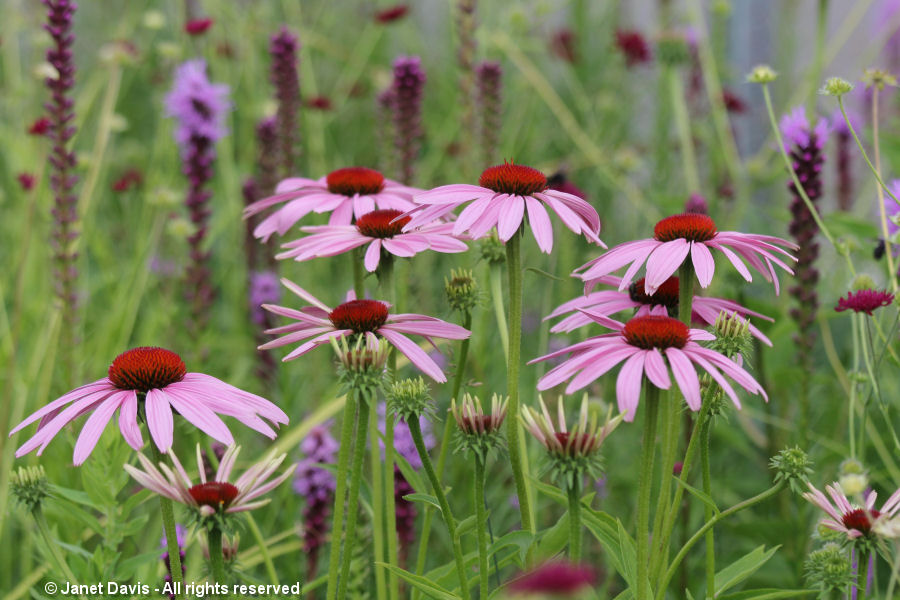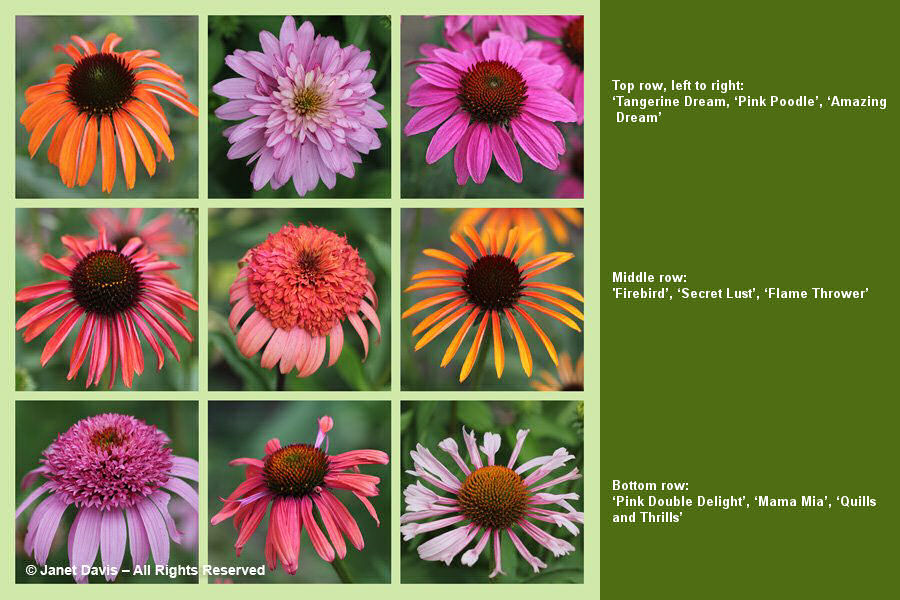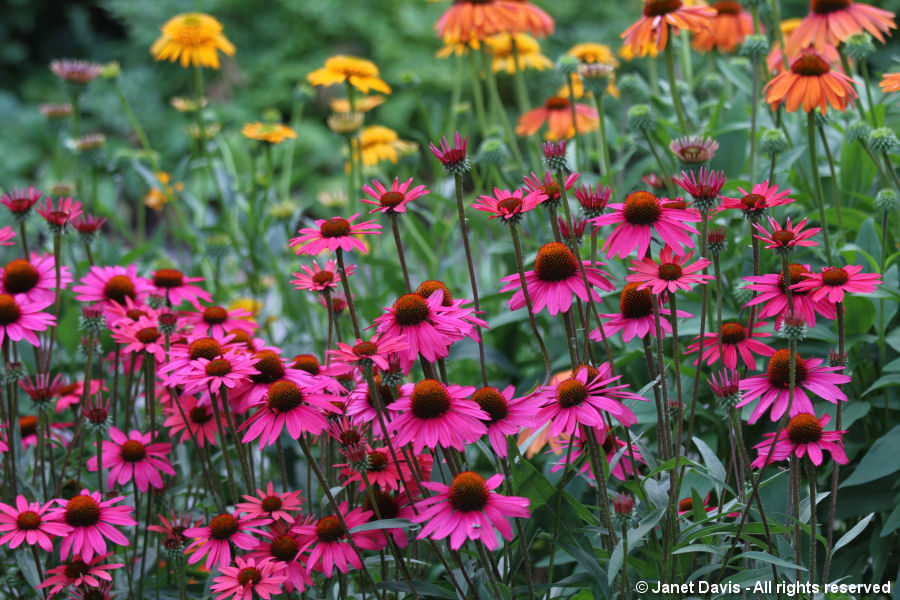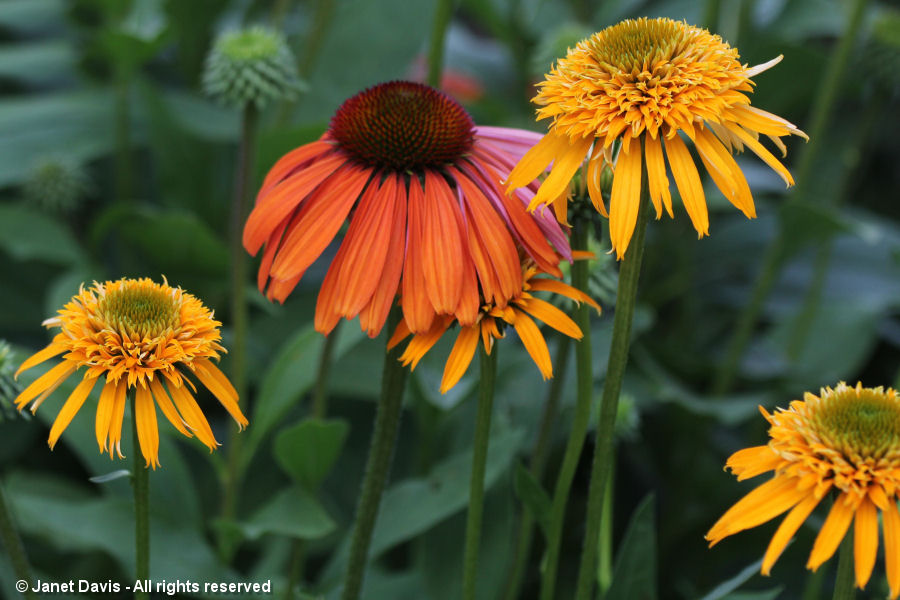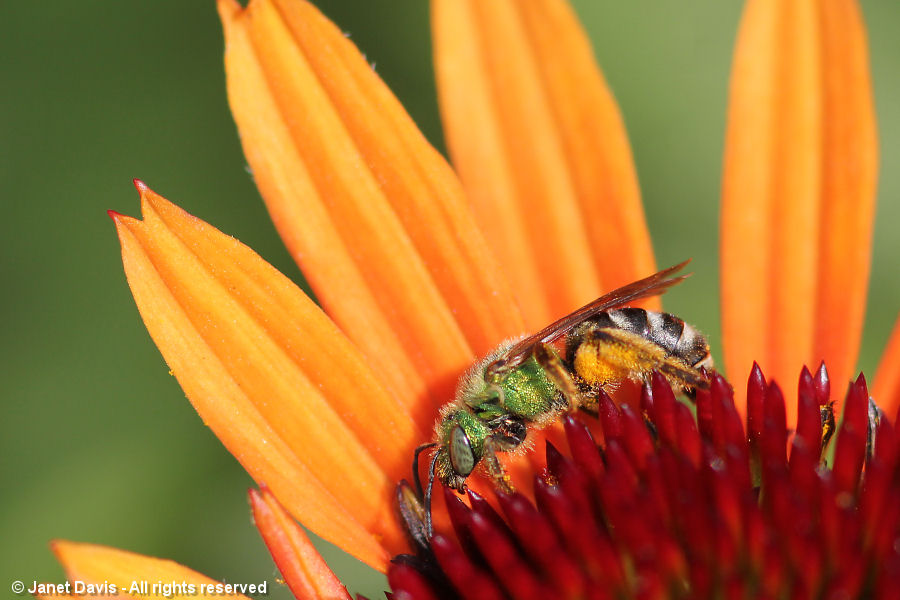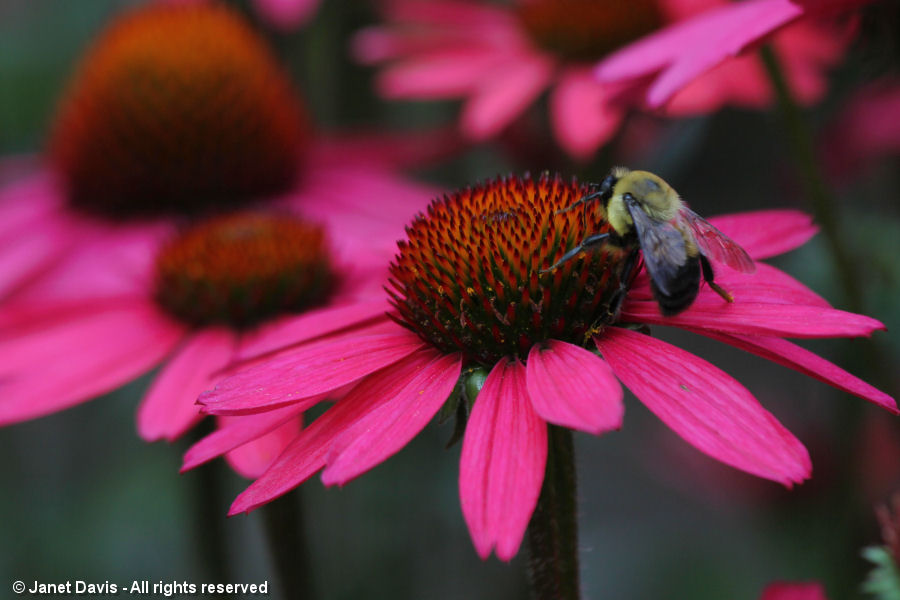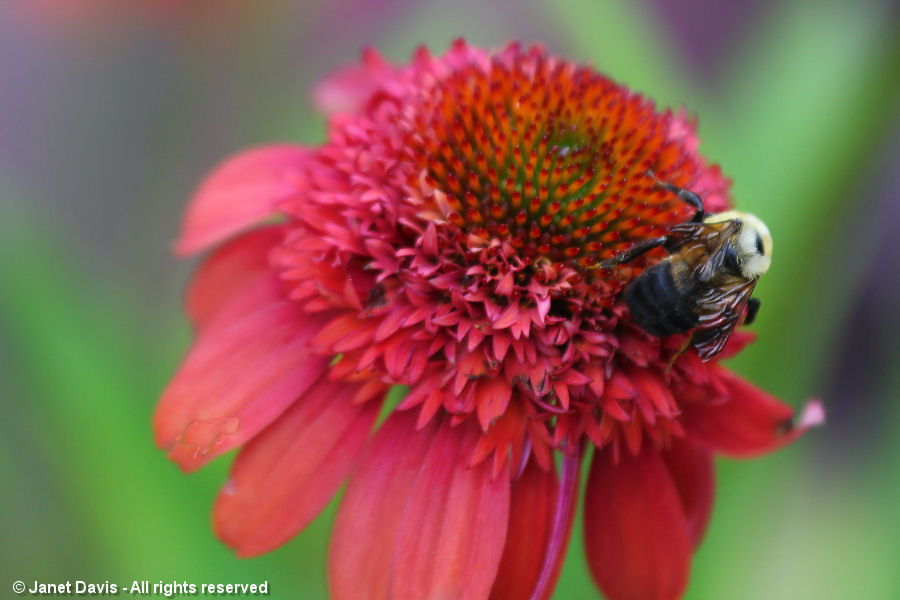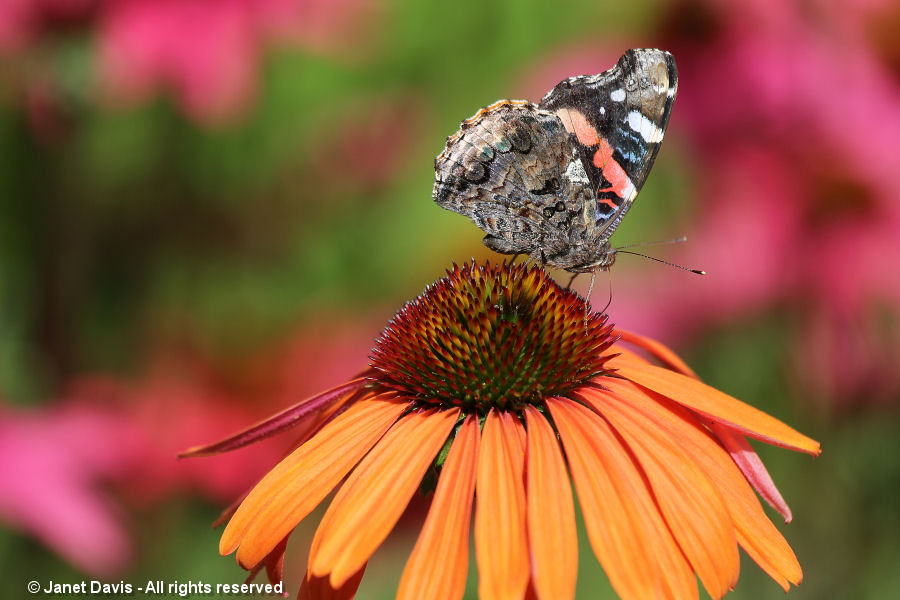I stopped by the Toronto Botanical Garden on my way out of town yesterday, because I knew if I left it until I returned to the city in 10 days I’d miss the echinacea show. The TBG has incorporated into its various gardens the “regular” (pinkish) purple coneflowers (Echinacea purpurea), like these ‘Rubinstern’ flowers in the entry border…..
……and many of the beautiful colour variations that have permeated the market over the past few decades, including white, yellow, orange and red hybrids. The varieties below are featured in the President’s Choice Show Garden. Many are the fruit of the echinacea breeding program at Portland’s Terra Nova Nurseries.
And, of course, they were all ravishingly beautiful, for their moment to shine is mid-July. ‘Amazing Dream’ from Terra Nova is a dramatic, glowing, crimson-pink.
Orange ‘Tangerine Dream’ and double gold ‘Secret Glow’, both from Terra Nova, make fine bedmates.
Reproductively, echinacea is self-infertile, meaning it must be cross-pollinated to make seed. It does that in an interesting way. Each inflorescence (capitulum) is composed of ligulate or ray florets (the colourful petals) on the outside and an inner cone made up of roughly 276 tiny, whorled, bisexual disk flowers, each subtended by a tough bract that lends the plant its Latin name, echina, meaning hedgehog. Each whorl of disk florets, starting from the outside and working towards the centre during the bloom period, goes first through a staminate stage, in which the stamens elongate and release pollen on the first day, then a pistillate stage on the second day, in which the ovary becomes receptive – but only after the flower’s own pollen supply has been disseminated. This sexual strategy of separating the male and female phases on one inflorescence to facilitate cross-pollination is called protandry, Nectar production is not left to chance, but is carefully controlled by the plant to ensure pollinators visit at the appropriate time to effect cross-pollination. This tiny sweat bee (Agapostemon virescens) got the message, and was carefully probing each tiny disk floret for sweet nectar.
And not just the little sweat bee, but the bumble bees, too, like this Bombus impatiens on ‘Amazing Dream’..
And this one on ‘Meteor Red’ (which made me happy, because though it’s a semi-double, some of those nectar-rich flowers are accessible to insects).
The butterflies got the nectar memo as well, like this American painted lady. We were all there for the sweet echinacea fantasia festival!

